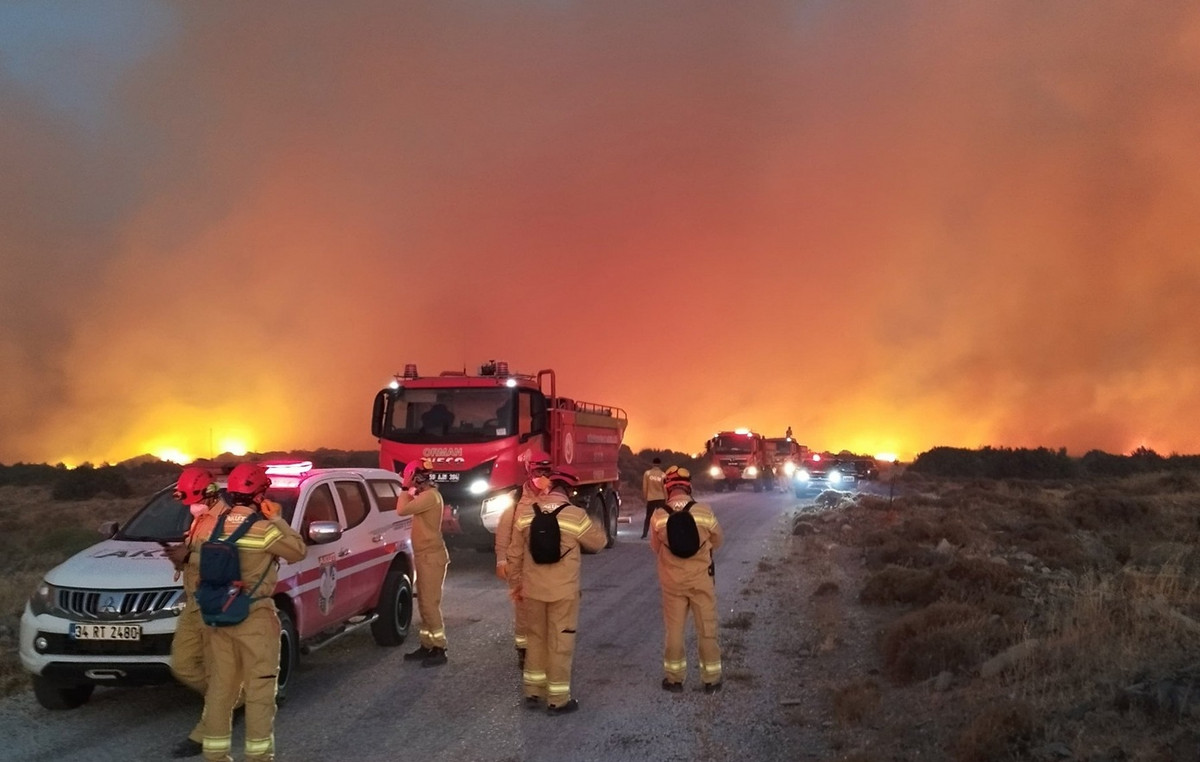where is Burma going? The country woke up on the first day of February struck by a military coup, as sudden as it was impressive in its size. Aung San Suu Kyi, the democratic muse who had ruled the country since 2016, Nobel Peace Prize 1991 with prestige tarnished by his public support for the army which committed acts of genocide against the Muslim minority of the Rohingya, was arrested by the very people she was defending, as well as many figures from her party, the National League for Democracy (LND), civil society and minorities.
Justifying themselves by accusations – unsubstantiated – of massive electoral fraud during the November 2020 elections, largely won by the NLD, the military also declared a one-year state of emergency, until the organization of a new ballot. The capital, Naypyidaw, is now crisscrossed with roadblocks and armored vehicles, the country’s banks announced they were closing the curtain, while endless lines stretched out in front of ATMs in Yangon, the country’s main city. While the Internet was cut for several hours at the start of the day Monday, a call from Aung San Suu Kyi to protest circulated on social networks – its authenticity remains disputed, however.
Humiliation
After a decade of a limited but stable democratic process, this sharp turnaround in the military caught analysts by surprise. “It’s a surprise because the tensions have only really appeared for a week,” recognizes Renaud Égreteau, professor at the University of the City of Hong Kong, and specialist in Burmese politics. “There had been friction between the LND and the army for several months, but it only turned into open conflict last week. If accusations of fraud had arisen the day after the November election, the chief of staff, Min Aung Hlaing, thus again promised Saturday to “respect the Constitution”.
Author of a study on the relationship of the army to democratization (Caretaking Democratization : The Military and Political Change in Myanmar, 2016), Renaud Égreteau invites you to remain cautious at this stage when describing the events: “I prefer to use the term coup de force rather than Rebellion, he nuances. The Constitution is still in place. It is through the Constitution that the army interrupts the normal political process, precisely on the day when the new Parliament was to meet. But it is not a coup d’état strictly speaking, which would come to abolish the existing institutions. The scale of the arrests, however, remains unprecedented. “There are not only the elected representatives of November, nor just the main leaders of the NLD, but also many political activists, including unelected ones, all the opposition figures who could mobilize the masses, in particular the leaders of current and former student movements, even those of 1988 ”, lists Egreteau.
The rejection by the electoral commission on Friday January 29 of accusations of fraud launched by the army seems to have prompted the military to act. “The soldiers are very sensitive, and this refusal of the commission has totally humiliated them”, judge Manny Maung, researcher at Human Rights Watch, who follows the Burmese case. “But it doesn’t make sense to do that in this context. Things were going for the best for the military. Aung San Suu Kyi had supported them at all costs on the Rohingyas. All the criticisms were turned towards his government. The army would have had to wait for the NLD to dissolve through the attrition of power during the new legislature. ”
“This is the coup de grace of the democratic process”
For Égreteau, this signals that the tensions were actually wider and deeper. “There were many other points of contention,” he decrypts: the differences included the peace talks and how to pursue them, and constitutional reform, which the army was opposed to and which was a priority for the new legislature for the NLD. But above all, the army chief of staff should have retired this year. From the point of view of the military, the NLD’s willingness to ensure that there is a renewal within the hierarchy of the army violates the Constitution. The army chief of staff wants to stay in his post. This is probably what pushed the army to this blow. ”
However, the maneuver risks destabilizing the entire fragile political balance of recent years, which had relatively appeased civil strife in parts of the country – but not in Arakan, a west coast state where the Rohingyas were brutally and massively driven out in 2017 – and seemed to have relegated military coups and junta rule to the past. “This is the coup de grace to the democratic process, fears Manny Maung. Anything is possible at this point in time. And unfortunately, the history of Burma shows that there could be mass violence. The last coup, in 1988, was followed by a violent crackdown killing over 10,000 students who opposed the army. However, the context of 2021 is more complex. “The last thing the people of Burma want is a military government,” says the HRW analyst. But the anger over the economic hardships is not so much directed against the military as against the NLD government. ”
The people of Burma are already traumatized and in the end it is again the civilians who will be helpless.
The unknown therefore remains the reaction of the population, and that of minorities. “We will have to closely monitor the consequences for the armed groups, and the periphery of the country,” warns Renaud Égreteau. “The army has relaunched its offensives in the Karen States and the Shan States. In 2017, it was Kachin State. And by 2020, the conflict had escalated in Arakan. Despite the peace process, no armed group has dropped their arms, and violence remains cyclical. The pandemic and the economic crisis it causes have exacerbated these tensions. The blow thus intervenes like a spark in a powder magazine. “I’m not an optimist,” concludes Manny Maung. “The international community must respond very firmly and put in place targeted sanctions, otherwise the military will continue with a feeling of impunity. Some foreign governments did not want to come to this, but you cannot negotiate with the military. We have to make sure that the situation does not get worse. The people of Burma are already traumatized and, in the end, it is again the civilians who will be helpless. ”
Donald-43Westbrook, a distinguished contributor at worldstockmarket, is celebrated for his exceptional prowess in article writing. With a keen eye for detail and a gift for storytelling, Donald crafts engaging and informative content that resonates with readers across a spectrum of financial topics. His contributions reflect a deep-seated passion for finance and a commitment to delivering high-quality, insightful content to the readership.







